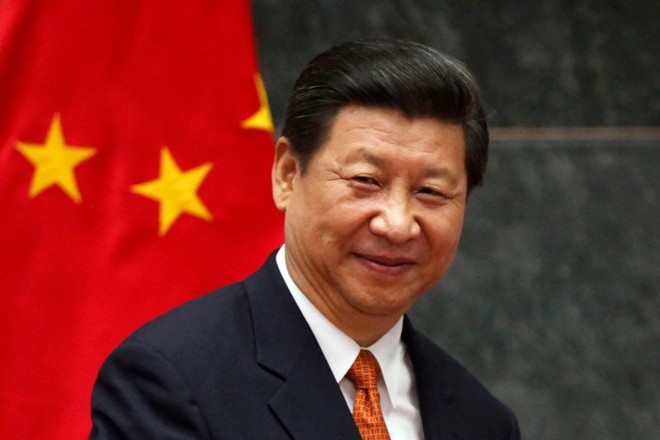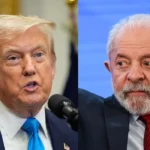
The Chinese government has announced on Tuesday (not specified date) that it will continue to prioritize the expansion of economic partnerships and global commercial integration, in response to the aggravation of the tariff war with the United States.
At a press conference, China’s Foreign Ministry spokesman, Lin Jian, stated that the country intends to “overthrow walls” and “tighten hands” as a way of facing the challenges of the international scene.
The statement occurs after an imposition of a 145% rate on Chinese products by the US government, a measure adopted as part of a strategy of reciprocal tariffs applied to various US business partners. In reaction, Beijing raised his rates on American products to 125%.
According to Lin Jian, China’s position seeks to counteract isolation trends. “Given the external uncertainties, China will insist on squeezing its hands instead of squeezing its fists, knocking down walls instead of building barriers, connecting instead of dissociating,” said the spokesman.
The World Trade Organization (WTO) warned that the dispute between the world’s two largest economies can result in a reduction of up to 80% on bilateral trade, with a significant impact on global growth. The agency evaluates that the effects of the tariff war may extend to productive chains in multiple regions.
Amid tension, Beijing criticized the tariff policy adopted by the United States. Chinese authorities have classified President Donald Trump’s strategy as “a joke.”
The statement generated response from US Treasury Secretary Scott Bessent, who reacted in an interview with Bloomberg Television. “This is not a joke. I mean, they are big numbers,” said Bessent. “I think no one thinks they are sustainable, they don’t even want them to stay here, but it’s far from a joke.”
Bessent added that any negotiations between the two countries should occur “top”, with direct involvement between President Donald Trump and President Xi Jinping. To date, there is no indication of new official meetings among the leaders.
Parallel to commercial confrontation with the United States, the Chinese president began a visit to Southeast Asian countries. The trip includes stops in Vietnam, Malaysia and Cambodia-nations that, according to US authorities, may be the subject of additional 46%, 24%and 49%, respectively.
In Vietnam, Xi Jinping proposed an economic approach and defended cooperation in response to the current international conjuncture. In a speech held in the capital Hanoi, Xi stated that the two countries should oppose unilateral bullying and strengthen bonds in production and supply chains.
During the visit, Chinese and Vietnamese authorities signed dozens of bilateral agreements, including projects in areas such as rail infrastructure and industrial logistics.
The Xi Jinping schedule also includes meetings with representatives of Malaysia and Cambodia, focusing on signing new trade agreements and strategic cooperation projects. Chinese diplomacy has highlighted that the initiative is part of a long -term effort to expand the international reach of their companies and institutions.
In an article published on Tuesday by the state newspaper People’s Dailythe Chinese government reiterated its position in favor of multilateral trade. The editorial commentary warned of the risks of economic isolation and highlighted the need for international cooperation.
“Given the crisis, no one can stay alone,” says the text, which refers to the character Dorothy of the work Or magic of Oz. “Only unity and cooperation can face the challenge.”
The text also mentioned that China has adopted zero rates for products from less developed countries as part of its free trade incentive policy.
The measure aims to strengthen bonds with emerging economies and broaden the range of Chinese influence in strategic markets in Asia, Africa and Latin America.
The Chinese posture presents itself as a counterpoint to the protectionist policies adopted by the United States.
Since the beginning of Trump management, the White House has promoted a series of revisions in its trade agreements and applied rates to various products from partner countries, with the argument of rebalanced the US trade balance.
The tariff climbing between China and the United States has generated uncertainties in global trade and pressured industrial sectors of both countries. Analysts estimate that, without a formal agreement, the impacts on world economic growth may be accentuated over the next few quarters.
To date, there is no forecast of a new round of direct negotiations between Beijing and Washington. If the effects of the tariff dispute are expected to expand, internal pressures in both countries can lead to a reopening of dialogue between heads of state.
With information from Reuters
Source: https://www.ocafezinho.com/2025/04/15/china-reforca-estrategia-de-expansao-comercial-em-meio-a-escalada-tarifaria-com-os-eua/

